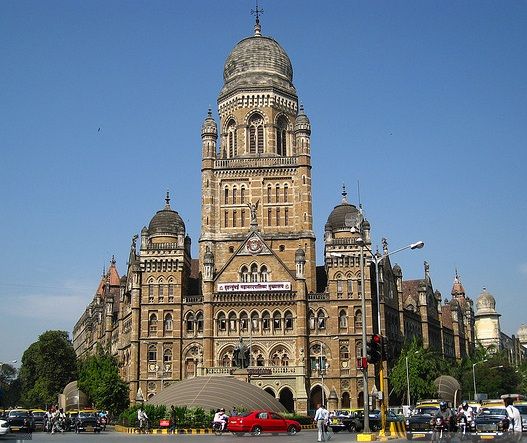 Given that Mumbai civic body deals with the lives of the people at the cutting edge, the better way would have been to agree to have giant television screens put up outside the civic headquarters to relay the proceedings live so the people are kept in the loop. It eliminates to an extent the distance between the people and their civic keepers but perhaps it is farfetched now, says Mahesh Vijapurkar.
Given that Mumbai civic body deals with the lives of the people at the cutting edge, the better way would have been to agree to have giant television screens put up outside the civic headquarters to relay the proceedings live so the people are kept in the loop. It eliminates to an extent the distance between the people and their civic keepers but perhaps it is farfetched now, says Mahesh Vijapurkar.
Why is the opposition in Mumbai’s civic body fuming because two CCTV cameras have been installed (external link) in the Standing Committee hall? Standing Committee chairmanship is more coveted a post than the mayor: the mayor’s post is more an ornament, whether he or she brings lustre to the city’s civic life being an altogether a different question.
The Standing Committee meetings are not closed door, or in camera, sessions. They are open to the media. Sparse in attendance, they depend on later briefings which can skirt crucial facts even in the awards of huge contracts, often within minutes of being taken up. Suspicion has been that it enables cartels to work, shoddy contractors being given work time and again.
Given that it deals with the lives of the people at the cutting edge, the better way would have been to agree to have giant television screens put up outside the civic headquarters to relay the proceedings live so the people are kept in the loop. It eliminates to an extent the distance between the people and their civic keepers but perhaps it is farfetched now.
On the other hand, Hutatma Kisan Ahir Cooperative Sugar factory in Sangli district, the only non-Congress one, used to conduct its board meetings in the open so the farmer-members could be abreast of even the nuances of decisions. Even the tenders for supplies were opened in the general body, taking transparency to a new level.
I talked to a senior journalist who had covered the Mumbai municipal corporation. He had scary things to narrate. Here is one gem relating to the early 1980s. Sharad Rao, a trade unionist now, was not amenable to a cost escalation approval and was a steadfast in his objections.
Suddenly, someone passed a chit to him saying a visitor was waiting for him downstairs at the gate. He rushed out, scouted for the said visitor at all the entry points to the building but found none. Exasperated, he returned to the committee room only to find that in his short, apparently engineered absence, the cost escalation had been cleared.
He recalls how, if a reporter was present, an embarrassment of being caught out was worked with the simple devise of filibusters with inanities to an extent reporters got bored and left the place when the business would suddenly become, well, business-like. Subterfuge, one imagines, is institutionalised.
Is the CCTV being objected to because it could catch these moves? That it is being seen as a potential tell-all fly on the wall? The curious aspect is the objection has come from the opposition. The Times of India quoted Devendra Ambekar saying "The recording(s) can be misused by any political party or officials”.
That’s a strange argument in the era of Right to Information ushering in to some extent transparency in public administration, providing some relief, even if only nominal, from misgovernance in the country. An RTI application may not reveal who steered a bad contract to successful allocation but a CCTV can, perhaps.
Is that why in 2005, when the CCTVs were not quite a fashionable thing to install to show intent to control mischief, the then mayor, Datta Dalvi was forced to disconnect the voice link between the committee room and his office? The opposition was behind that then as well, which implies, that despite being open, the effort is toward opacity, cutting across parties.
Unfortunately, CCTVs are seen as a means to check crime and not as a tool to facilitate transparency. If they are installed in the civic body, it is only to see who had entered with an evil intent of devastating the premises though we know that once cameras are set up in public places, their maintenance go for a toss. On crucial occasions, the evidence is unavailable.
The argument centres on a single fact -- no recording, including photographic, is allowed and the installation by some archaic rule and The Times of India says the officials were “embarrassed” to find that the contractor who renovated had installed two CCTVs like he did elsewhere. That is odd: politicians who are city fathers ought to be discomforted.
However, given that a system operates where even blacklisted contractors get work, often at rates below the minimum estimates, execute poor work, delay its execution and seek escalations, and after which it is approved post a claimed inspection, the officials are not uninvolved. The two arms of the civic body, as in most other civic bodies, are hand-in-glove.
Conspiracy theories are not always figments of imagination and the officialdom’s “embarrassment” is in that perspective, understandable. Openness does not come easily even in local self-government bodies of which municipality is one. Little wonder transparency theories gain ground which only openness could forestall.










